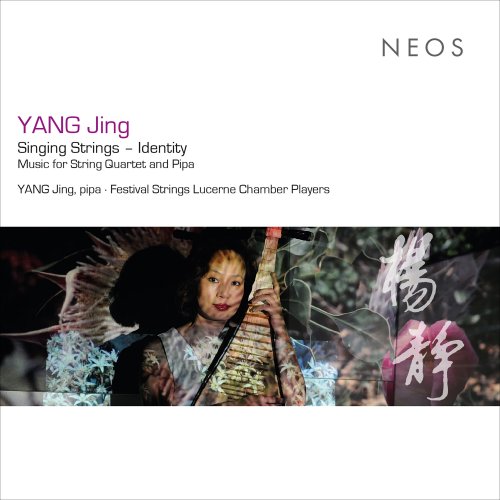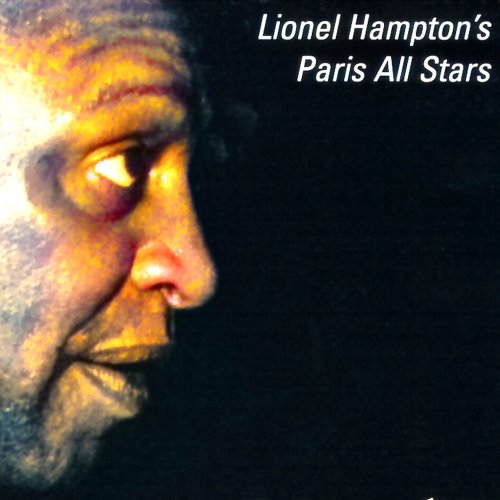Yang Jing, Festival Strings Lucerne - Yang Jing: Works for String Quartet and Pipa (2024) [Hi-Res]

Artist: Yang Jing, Festival Strings Lucerne
Title: Yang Jing: Works for String Quartet and Pipa
Year Of Release: 2024
Label: NEOS Music
Genre: Classical
Quality: flac lossless (tracks) / flac 24bits - 96.0kHz +Booklet
Total Time: 01:15:56
Total Size: 378 mb / 1.36 gb
WebSite: Album Preview
TracklistTitle: Yang Jing: Works for String Quartet and Pipa
Year Of Release: 2024
Label: NEOS Music
Genre: Classical
Quality: flac lossless (tracks) / flac 24bits - 96.0kHz +Booklet
Total Time: 01:15:56
Total Size: 378 mb / 1.36 gb
WebSite: Album Preview
01. Ein neuer Anfang, Op. YJ-0920
02. Morning Song & Evening Poem, Op. YJ-0918
03. Identity, Op. YJ-0117 (Version for Pipa & String Quartet)
04. Sunset Over Northern Heights
05. The Silk Pipa Dance, Op. YJ-1018
06. Jade in Strings, Op. YJ-0818
07. Singing Strings – Heart Swing, Op. YJ-0520
08. Silk Bamboo Strings, Op. YJ-0517 (Version for Pipa & String Quartet)
09. Black Horse, Op. YJ-0617 (Version for Pipa & String Quartet)
YANG Jing was born in China at a time when the so-called Cultural Revolution, which lasted from 1966 to 1976, greatly shaped her childhood. It wiped out all traditional, so-called bourgeois culture to a degree that we can scarcely believe even today. Mao's wife Jiang Qing postulated that only proletarian art and literature was acceptable, which for her had its real beginning only in 1963; all previous creative works were to be regarded as reprehensible and decadent. As one of the four leaders of the Cultural Revolution, who were later dubbed the Gang of Four, she was largely responsible for the attempt to wipe out China's cultural heritage. Only so-called models, six Peking operas and two ballets newly written for the purpose of popular education, were permitted.
Although Mao Zedong had described tradition as a "living current" a few years earlier, he allowed the Cultural Revolution organized by the Gang of Four to take place. In addition to spiritual impoverishment, this also brought a material impoverishment due to the brutal liquidation of a large part of the so-called elites along with all supposed and actual dissidents; the chaos that accompanied the social transformation led to famines. Almost all artists and musicians were deprived of their particular skills as part of the "rebuilding," and were to be "re-educated" through agricultural work organized in camps so that the historical heritage they had received thus far, as well as any foreign influence, would be eradicated.
Perhaps this explains YANG Jing's interest in Chinese tradition, which is revealed through her instrument, the pipa, and her music. Like scarcely any other Chinese composer, she succeeds in creating an amalgam of Western and Eastern musical languages, which is particularly evident here in the juxtaposition of the pipa with the string quartet. This combination of instruments is almost symbolic of the intersection of different worlds, which is all too often avoided in the standardized cultural industry.
![Reggie Watts - Reggie Sings: Your Favorite Christmas Classics, Volume 2 (2025) [Hi-Res] Reggie Watts - Reggie Sings: Your Favorite Christmas Classics, Volume 2 (2025) [Hi-Res]](https://img.israbox.com/img/2025-12/21/cn1c8l2hi7zp9j05a5u7nw49g.jpg)
![Enrico Zanisi - Blend Pages (2025) [Hi-Res] Enrico Zanisi - Blend Pages (2025) [Hi-Res]](https://www.dibpic.com/uploads/posts/2022-12/1670308427_enrico-zanisi-blend-pages-2018.jpg)
![Pharoah Sanders - Love is Here: The Complete Paris 1975 ORTF Recordings (2025) [Hi-Res] Pharoah Sanders - Love is Here: The Complete Paris 1975 ORTF Recordings (2025) [Hi-Res]](https://www.dibpic.com/uploads/posts/2025-12/1766433183_a3712374313_10.jpg)

![Mick Rossi - Songs from the Broken Land (2024) [Hi-Res] Mick Rossi - Songs from the Broken Land (2024) [Hi-Res]](https://www.dibpic.com/uploads/posts/2025-12/1766399499_592x592.jpg)
![Clifton Chenier - Clifton Chenier and His Red Hot Louisiana Band (1978) [Hi-Res] Clifton Chenier - Clifton Chenier and His Red Hot Louisiana Band (1978) [Hi-Res]](https://img.israbox.com/img/2025-12/20/u7c9mz3puf20w5rxo6nmae80o.jpg)


![Black Flower - Ghost Radio (2016) [Hi-Res] Black Flower - Ghost Radio (2016) [Hi-Res]](https://img.israbox.com/img/2025-12/21/9jx4xnhjd3hra5u06rbmghsre.jpg)